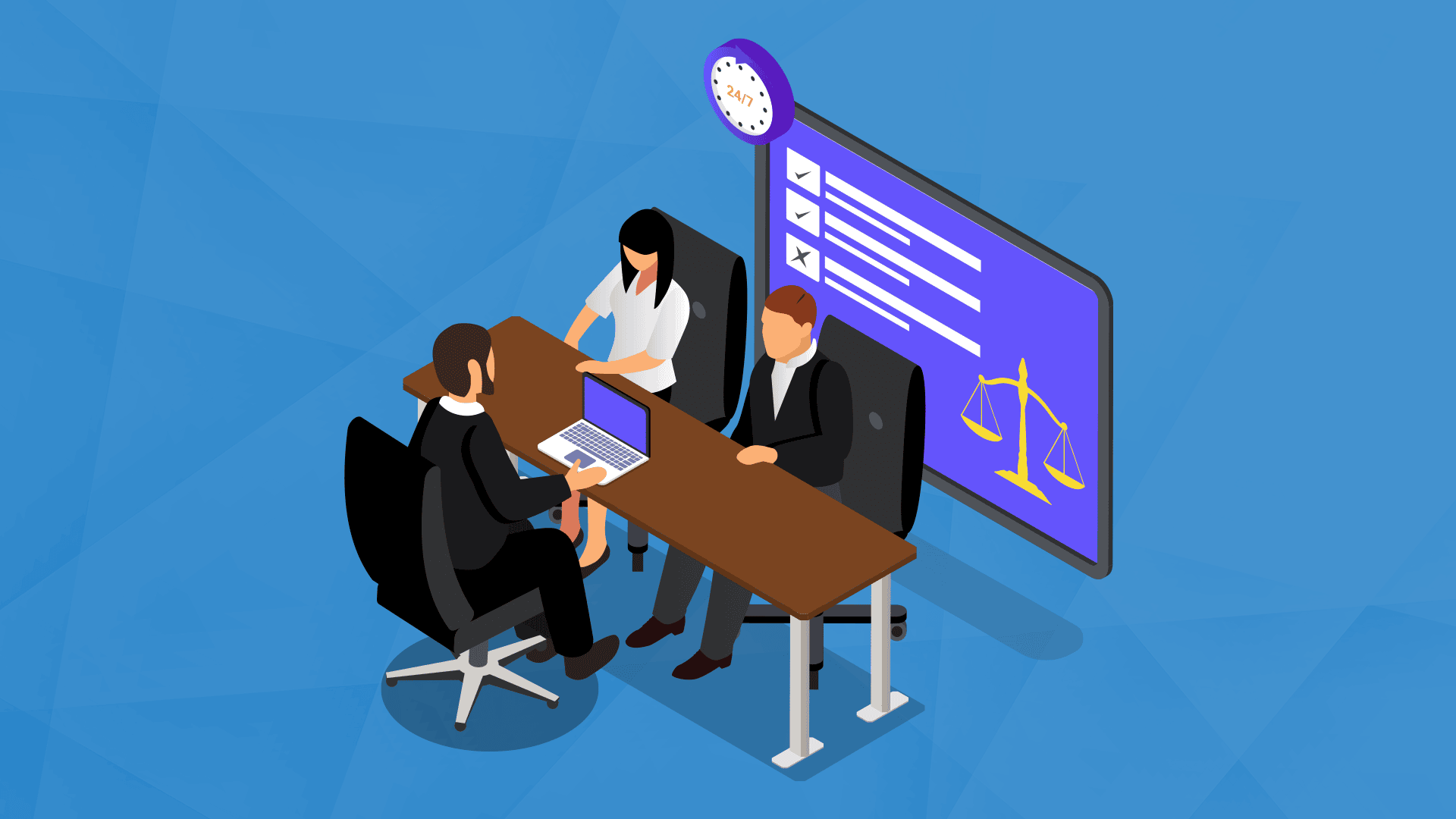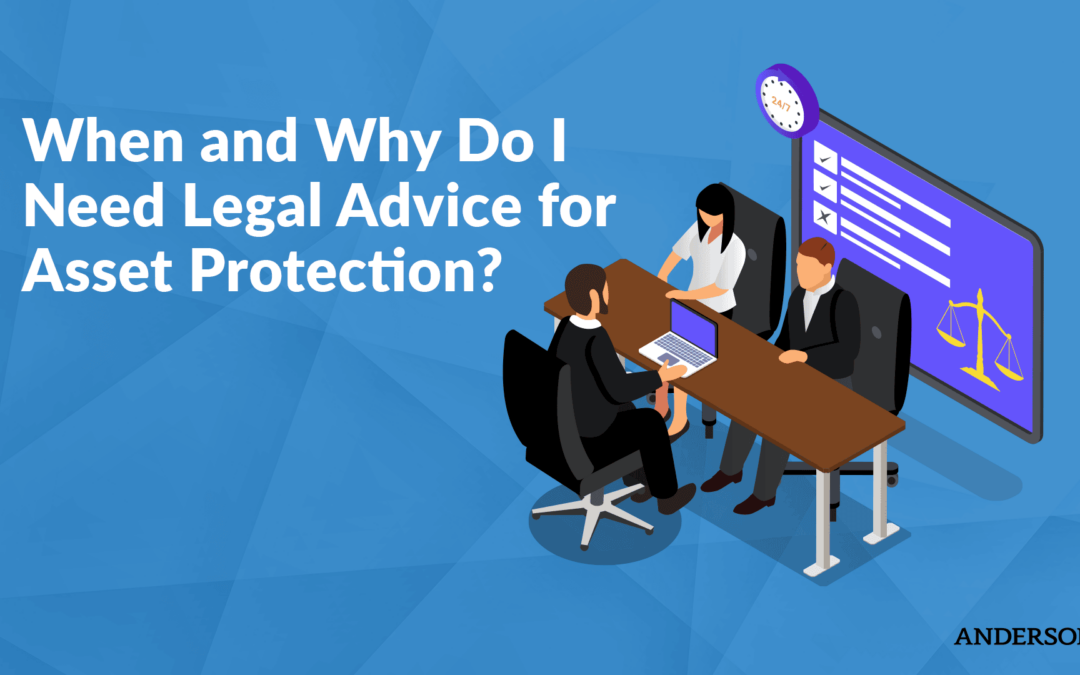
Asset protection is an important topic for anyone with valuable assets to their name. You face many potential dangers from creditors and claimants alike. While you can take some basic steps to protect your finances on your own, it’s best to seek legal advice for more significant protections, such as trusts, limited liability companies (LLCs), estate planning, and prenuptial agreements.
A lawyer can help you avoid possible loopholes that a savvy creditor or another attorney may take advantage of. Knowing when to call a lawyer and what they can do for you can help keep your assets safe.
Key Takeaways:
- Anyone with valuable assets should seek legal advice on asset protection.
- Creditors and claimants can access your assets if they’re not well protected.
- Trusts and LLCs can help you keep your assets out of a lawsuit and away from creditors.
- If you don’t place your assets in a trust early enough, you can’t protect them from litigation.
Tax & Asset Protection Workshop
Learn about Real Estate & Asset Protection at our next
FREE LIVE STREAM
Who Needs Asset Protection?
Any individual with valuable assets to their name needs to think about asset protection. Creditors, claimants, taxes, ex-spouses, and unexpected expenses can all chip away at your money if you’re not careful. While anyone can benefit from thoughtful asset protection strategies, there are a few individuals who will enjoy more significant benefits from seeking legal advice on asset protection.
Business Owners
As a business owner, you face a lot of risks that individuals in other occupations never have to think about. You’re liable not only for your own actions but also for those of your employees. This puts you at risk for:
- Employee lawsuits associated with discrimination, harassment, personal injury, wrongful termination, and other claims.
- Competitor lawsuits for copyright infringement.
- Client lawsuits for product liability, professional liability, or injury on your property.
- Partner lawsuits for breach of contract.
Litigation isn’t the only threat to your business. If you’re running a small business with limited staff, you could face catastrophic financial fallout if you become ill or injured and can no longer run the business yourself. A natural disaster or other unexpected situation may cause your business to close unexpectedly, leaving you in dire financial straits. Divorce may leave your company and revenue vulnerable to claims from your spouse.
With so many potential risk factors, it’s easy to see that business owners have a unique need for asset protection. Thoughtful strategies will help put essential funds out of the reach of many claimants and creditors, giving you critical financial protection in difficult situations, such as those mentioned above.
Entrepreneurs
Entrepreneurs face many of the same risks as business owners with a few added challenges. While business owners often use a tried-and-true business strategy to generate income, entrepreneurs are more likely to challenge the status quo and branch off into something new. Entrepreneurship is typically a high-risk endeavor, which makes it especially important for you to separate your personal and business assets and properly protect the two.
One of the best asset protection strategies for an entrepreneur is the formation of an LLC, where an individual working alone starts a sole proprietorship while two or more partners work together to form a partnership. The finer points of establishing these entities are quite complex. Consulting a lawyer is the best way to make sure you’re handling everything properly.
You should also seek legal advice on the proper measures to keep personal and business assets separate. If you have multiple business ventures, speak with your lawyer about protecting each business individually.
Professionals at Risk for Lawsuits
In an increasingly litigious society, many professionals have found that they’re at significant risk of litigation. This is especially true for those in the medical profession. A 2017 Medscape report found that 55% of respondents had been sued for malpractice. Surgeons, OB-GYNs, and women’s health specialists are the most likely to be sued, with 85% indicating that they’ve faced a lawsuit. Lawyers and accountants also have a high risk of litigation.
If your profession puts you at a high risk of facing litigation, it’s wise to seek legal advice on the best way to protect your assets. While you’ll need to keep much of your money readily accessible, there are some strategies you can implement for funds that you can afford to stash elsewhere. Establishing a trust can secure some of your investments, assets, and finances in such a way that claimants and creditors cannot access them.
Retirees
Mindful financial management is crucial in retirement to ensure that you have enough funds to comfortably enjoy your golden years, even in the face of unexpected situations. A legal advisor can help you explore your options for retirement planning and select the strategy that’s best suited to your individual situation. A qualified retirement plan is one option that protects your money much like an IRA. It gives you a diverse range of investment options, full control of your finances, and the ability to leverage funds for real estate transactions.
There are some legal requirements associated with a qualified retirement plan, so it’s best to seek advice and assistance from an attorney as you’re setting up your account. Your lawyer can help you consolidate your accounts, set up tax-deductible contributions for you and your business, and much more.

How Can an Attorney Protect My Assets?
A good attorney will help you put together a personalized asset protection plan. Consider how much money you need to keep on hand, what you can afford to invest, and how quickly you need to access your protected funds. While asset protection makes it more difficult for others to pursue your funds, it can also make it harder for you to get access to this money.
An attorney will advise you on key points, such as how to allocate your assets and where to place them for safeguarding. Some options worth discussing include:
- Trusts: Both domestic and offshore trusts can protect your assets from creditors. You lose some degree of control over your assets when they’re in a trust, so you should speak with a qualified lawyer about the best way to use this tool.
- LLCs: An LLC acts as a shield between your personal and business assets. If you’re a business owner or entrepreneur, an LLC will help you safeguard your personal finances if a business lender or lawsuit comes after your assets.
- Estate planning: Estate planning protects your assets from creditors and claims after your death. You can use an irrevocable trust and other strategies to keep your money safe for your loved ones.
The Bottom Line
A legal professional will help you avoid common mistakes, such as waiting too long to place your assets in a trust or establishing a trust that doesn’t have the proper protections in place. If you have vulnerable assets, speak with a financial advisor as soon as possible about the best way to manage them. You can evaluate your risks together and create a personalized plan for keeping your assets safe.
Free Strategy Session with an Anderson Advisor
Receive a detailed risk assessment to assist in lowering problem areas that could wipe out all of your assets with one wrong move. Speak with an Anderson Professional Advisor to get your FREE Strategy Session. Limited-Time Offer: FREE (a $750 value.)












